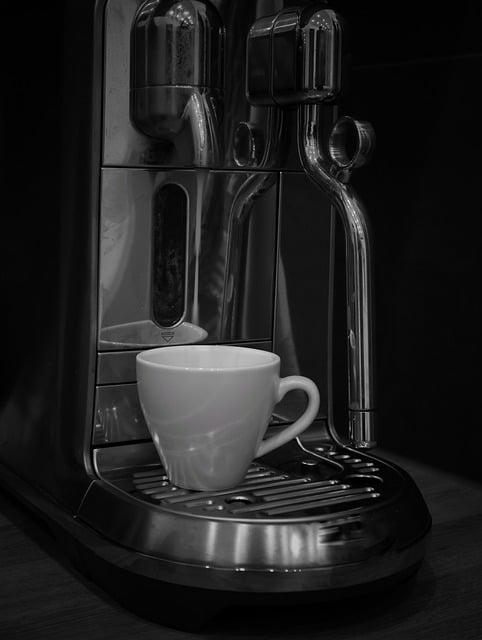Hey there, coffee lovers! ☕️ Are you one of those people who just can’t start their day without a hot cup of joe? In a world where coffee is practically a lifestyle, it’s hard to resist that warm, rich aroma and the comforting ritual of sipping on your favorite brew. But hold up—have you ever wondered if you’re drinking coffee in a way that’s actually good for your health? With so many brewing methods, endless flavors, and a ton of mixed advice out there, it’s easy to get lost in the caffeine chaos. Fear not, my fellow caffeine enthusiasts! In this blog, we’ll dive into the nitty-gritty of coffee consumption, from the best ways to brew it to what additives might be sabotaging your health goals. So grab your mug, settle in, and let’s figure out how to enjoy our beloved coffee while keeping our bodies happy and healthy!
Understanding Your Brew: The Health Benefits of Different Coffee Types
Diving into the world of coffee can do wonders for your health, provided that you choose wisely! Different types of coffee offer unique benefits that extend beyond just keeping you awake. As an example, espresso is a concentrated shot of goodness that’s rich in antioxidants, making it a top contender for boosting your immunity. If you’re a fan of cold brew, rejoice! This smoother, less acidic beverage can be gentler on your stomach, while still delivering that caffeine kick. For those who love their brews with a twist, bulletproof coffee combines high-quality coffee with healthy fats, which some believe can enhance mental clarity and promote weight loss.
Let’s not forget about good ol’ decaf – it’s not just for night owls! This type retains much of the antioxidant properties of regular coffee, providing a delightful option without the jolt of caffeine. Here’s a speedy glance at some popular coffee types and their key benefits:
| Coffee Type | Health Benefit |
|---|---|
| Espresso | High in antioxidants |
| Cold Brew | Less acidity, soothing for the stomach |
| bulletproof | mental clarity and potential weight loss |
| Decaf | Same antioxidants without caffeine |
Sipping Smart: Ideal Timing and Portion Sizes for Maximum Benefits
When it comes to coffee, timing can be everything! For those looking to maximize their caffeine kick and health benefits, consider the ideal times to sip your favorite brew. Studies suggest that the best windows for coffee consumption are between 9:30 AM and 11:30 AM, and again in the early afternoon around 1 PM to 3 PM. During these periods, your body’s natural cortisol levels dip, allowing caffeine to enhance your alertness and overall performance. Plus, sipping coffee during these times can help you avoid that midday slump! Make your coffee moments even better by checking out this compact guide:
| Ideal Time | Benefits |
|---|---|
| 9:30 AM – 11:30 AM | Boosts alertness and cognitive function |
| 1 PM – 3 PM | Helps combat afternoon fatigue |
Not only should you pay attention to timing, but portion sizes also play a crucial role in your coffee routine. While the average 8-ounce cup of coffee is generally safe for most individuals, moderation is key. A good rule of thumb is to keep your daily intake around 400 mg of caffeine (roughly 4 cups of brewed coffee) to reap the maximum health perks without overdoing it. Remember, everyone’s body reacts differently, so listen to yours! If you notice jitters or unease, it might be a sign to scale back. To get the most from your coffee experience, consider these portion tips:
- Stay under 400 mg: Ideal daily limit for most adults
- Pay attention to servings: Restaurant sizes can be larger!
- Balance with water: Hydrate to manage caffeine effects

Perk Up with Additives: The good, The Bad, and The Delicious
When it comes to jazzing up your coffee, the options are plentiful, but not all additives are created equal. Adding milk or plant-based creamers can provide a smooth texture, but be cautious of excess sugar and calories. natural sweeteners, like honey or stevia, can offer a healthier alternative, while spices such as cinnamon or nutmeg not only enhance flavor but may also bring potential health benefits.On the downside, flavored syrups pack a sugary punch that can quickly spike your calorie intake without delivering much in terms of satisfaction.
Let’s break down some common additives that could either elevate your brew or drag it down:
| Additive | pros | Cons |
|---|---|---|
| Sugar | Quick energy boost | Weight gain, energy crash |
| Coconut oil | Rich in healthy fats | High in calories |
| Almond milk | Low in calories, nutty flavor | May contain additives |
| Collagen powder | Supports skin health | Can alter texture |
Incorporating the right blend can turn your ordinary cup into a delightful ritual. Balancing taste with nutritional benefits can mean the difference between a satisfying morning boost and one that leaves you craving more. Choose wisely and enjoy every sip!
Decaf Dilemma: When to Switch for a Health Boost
Many coffee lovers are torn between their daily ritual and the potential health impacts of caffeine. If you find yourself feeling jittery after that morning cup or experiencing anxiety spikes, it might be time to consider a switch. Decaffeinated coffee can still offer the comforting flavors and aromas of regular coffee without the extra buzz. Making this switch can also lead to improved sleep quality, reduced heartburn, and lower blood pressure for some individuals. It’s essential to listen to your body and keep track of how your energy levels and overall well-being change with this new choice.
So,when is the right time to take the plunge into decaf? here are a few scenarios to consider:
- Evening Routine: If you’re drinking coffee later in the day,switching to decaf can help you avoid those restless nights.
- Caffeine Sensitivity: If you usually experience jitters, heart palpitations, or tension headaches, decaf could be your best friend.
- Health Conditions: If you have specific health issues like acid reflux or hypertension, decaf may ease your symptoms.
Making the decision to switch to decaf doesn’t mean sacrificing flavor. In fact, there are some delicious options out there! Here’s a quick comparison table to help you choose:
| Coffee Type | Caffeine Content (per 8oz) | Flavor Profile |
|---|---|---|
| Regular Coffee | 95 mg | Bold, rich |
| Decaf Coffee | 2-5 mg | smooth, mellow |
| Herbal Coffee | 0 mg | Earthy, nutty |
Q&A
Q&A: Are You Drinking Coffee the Right Way for Your health?
Q1: What’s the healthiest way to drink coffee?
A1: Great question! First off, the best way is to keep it simple. Black coffee is often considered the healthiest option because it’s low in calories and packed with antioxidants. If you must add cream, milk, or sugar, try to go easy on it! Consider natural sweeteners like honey or even a splash of oat milk for some creaminess without the guilt.
Q2: Is it okay to drink coffee every day?
A2: Totally! For most people, moderate coffee consumption—around 3 to 4 cups a day—can be part of a healthy diet. Just remember that everyone’s tolerance for caffeine is different, so listen to your body.If you’re feeling jittery or having trouble sleeping, it might be time to cut back a bit!
Q3: what about coffee and hydration?
A3: There’s a myth that coffee dehydrates you, but recent studies show that moderate coffee consumption doesn’t have a significant dehydrating effect. In fact,your morning cup counts toward your daily hydration.Just make sure you’re also drinking plenty of water throughout the day!
Q4: Should I avoid drinking coffee late in the day?
A4: If you want to ensure a good night’s sleep, it’s best to steer clear of coffee later in the day. Caffeine can hang around in your system for hours, so aim for your last cup to be in the early afternoon.Your sleep will thank you!
Q5: are there any health benefits to drinking coffee?
A5: Yes, indeed! Coffee is linked to a bunch of health perks, such as improved brain function, a lower risk of certain diseases (like Parkinson’s and Type 2 diabetes), and even a potential boost in longevity. Just remember, those benefits come from moderate consumption—don’t go overboard!
Q6: Can I drink coffee if I’m sensitive to caffeine?
A6: Absolutely! if you’re sensitive to caffeine, you can opt for decaf coffee or try coffee alternatives like chicory root. There are also plenty of herbal teas that can provide a warm, comforting drink without the jitters. Always listen to your body and find what works for you!
Q7: Is flavored coffee bad for you?
A7: Flavored coffee can be delicious, but watch out for added sugars and artificial flavors that can sneak in. If you love the taste,consider adding natural flavorings like cinnamon or vanilla extract to your brew. They can add sweetness without the calories!
Q8: So, how do I enjoy my coffee while staying healthy?
A8: The key is moderation and mindfulness! Focus on high-quality coffee beans, consider your sugar and cream levels, and enjoy your cup at a time that suits your lifestyle. Plus, don’t forget to savor your coffee! Take those precious moments to relax and enjoy the ritual—it’s good for your mind and soul!
Got more coffee questions? Drop them in the comments below, and let’s brew up some answers! ☕️✨
in Retrospect
So there you have it! Coffee can be the ultimate sidekick for your health journey if you drink it the right way.By being mindful of your choices—from the brew method to what you add in—you’re not just savoring that rich flavor; you’re also fueling your body in a way that works for you. Remember,it’s all about finding what feels good for your unique vibe. So next time you grab your cup of joe,consider these tips and make it work for you. Cheers to happy sipping and toasting to better health, one delicious cup at a time! would love to hear how you like your coffee—drop your favorite brews in the comments below!






